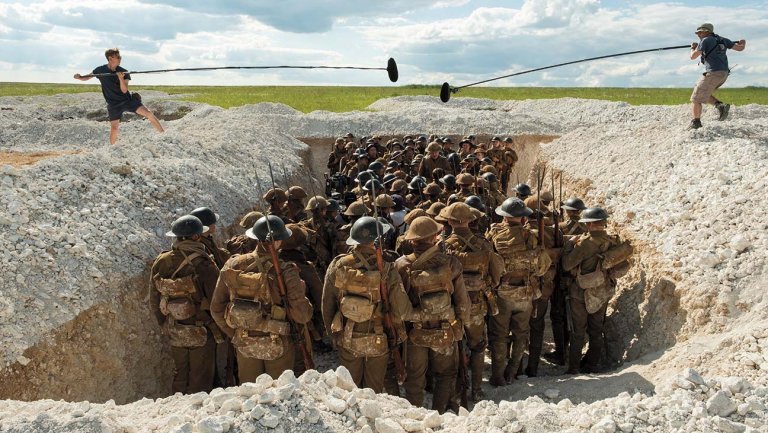To ensure that everything possible was being done on the production to help reduce the carbon footprint, environmental assistants monitored the team throughout pre-production and filming. As well as taking all the normal steps, such as limiting the use of printed documents, only using re-cycled paper, banning plastic cups and water bottles, the team had to examine every department from an environmental POV. One of the challenges of making big productions sustainable simply comes down to the volume of people working on the film.
With a large crew and an army of extras to feed, the team needed to not only check that the caterers themselves would be supplying sustainably sourced food with plenty of vegetarian options, but also that food waste and disposables were being disposed of properly. Due to the remote locations it was extremely difficult to supply everyone with china plates and metal cutlery, but instead they were given compostable plates and cutlery, and everyone was issued with a reusable water bottle to avoid any plastic water bottles on set.
The team researched waste disposal companies which are equipped to deal with compostable plates alongside food waste and found that Bio Collectors would collect their food waste and convert it into biogas, electricity and high grade fertiliser for agriculture. The team placed large blue waste bins around all the locations, and this, coupled with making everything on set biodegradable meant that all the waste from catering was diverted from landfill. The hair and makeup department also diverted as much as they could from landfill by using bamboo toothbrushes and biodegradable wipes.
On a production of this size, generators are unavoidable, however, where possible, rather than using the usual style of generator that runs on diesel, the team sourced generators that utilise waste vegetable oil. They had hoped to use solar powered generators but found it difficult to source them for the scale they needed. Whilst preferable to diesel, there are still questions on the sourcing of waste vegetable oil and in the next year the technology will have advanced enough for large scale productions to reduce their footprint even further by using electric generators.



